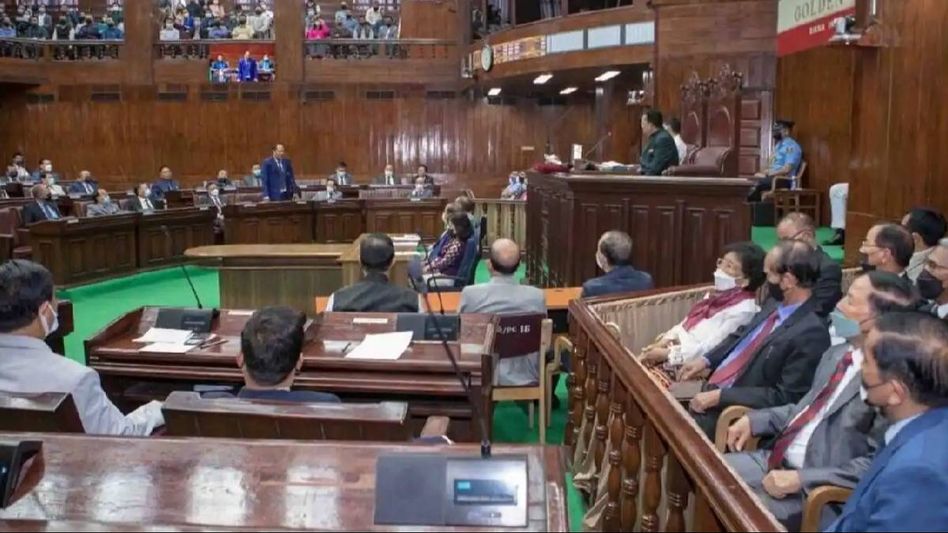Mizoram assembly adopts resolution against border fencing
The resolution, tabled by Home Minister K Sapdanga, implores the Union government to reconsider its stance, emphasizing the need to unify the Zo ethnic people under one administrative unit rather than further dividing them.
 Mizoram assembly adopts resolution against border fencing
Mizoram assembly adopts resolution against border fencingThe Mizoram assembly has fervently opposed the recent decisions by the Centre to fence the India-Myanmar border and scrap the Free Movement Regime (FMR) with the neighboring country. The resolution, tabled by Home Minister K Sapdanga, implores the Union government to reconsider its stance, emphasizing the need to unify the Zo ethnic people under one administrative unit rather than further dividing them.
Sapdanga articulated the historical context, underscoring the plight of the Zo ethnic people who have been geographically fragmented since the British colonial era. He lamented the imposition of the India-Myanmar border, dividing lands that were once under unified administration, and highlighted the aspirations of the Zo people for eventual reunification.
Expressing concerns over the potential ramifications, Sapdanga emphasized that the decisions would profoundly impact the lives of those residing along the border, disrupting longstanding ties and livelihoods. He criticized the rationale of national security, asserting that it cannot justify the division imposed by border fencing and the revocation of the FMR.
The assembly's deliberations also shed light on the broader implications of these decisions, with attention drawn to their perceived motivations and consequences. Allegations were made regarding the influence of demands from neighboring states, particularly Manipur, in driving these policy shifts.
Chief Minister Lalduhoma and leader of the opposition, Lalchhandama Ralte of the Mizo National Front (MNF), lent their support to the resolution, signaling a unified stance across political lines. This solidarity underscores the gravity of the issue and the consensus among Mizoram's leadership.
Mizoram's civil society organizations and student bodies echoed the assembly's sentiments, vehemently opposing the Centre's decisions. The concerns raised by various stakeholders reflect a deep-seated apprehension regarding the potential socio-economic and cultural repercussions of border fencing and the suspension of the FMR.
With Mizoram sharing ethnic ties and a border with Myanmar's Chin state, the resolution carries significant weight, representing not just a political stance but also a reaffirmation of cultural bonds and historical legacies.
Copyright©2025 Living Media India Limited. For reprint rights: Syndications Today









